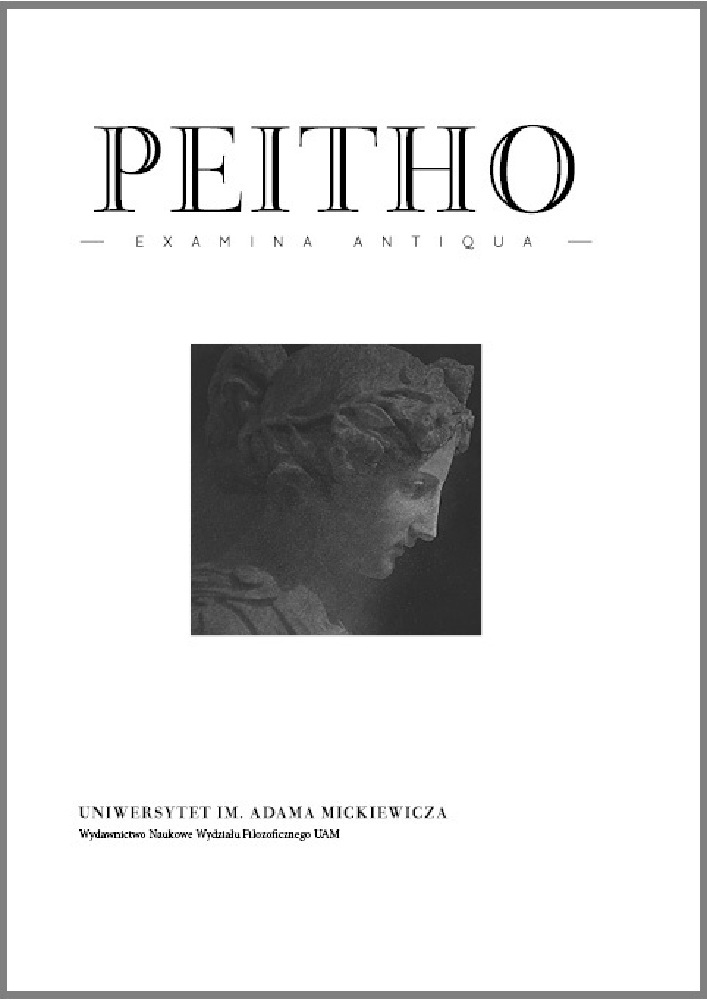Abstract
Speeches and persuasion dominate Plato’s Crito. This paper, paying particular attention to the final passage in the dialogue, shows that the focus on speeches, persuasion and allusions to many other elements of rhetoric is an integral part of Plato’s severe criticism of democracy, one of the main points of the Crito. Speeches allow members of a democracy – represented in our dialogue by Crito – firstly to break the law for self-interested reasons while considering themselves still to be law-abiding citizens, and secondly to feel that they are in a tolerant society preferring logos/persuasive speech above bia/compulsion. Socrates counters Crito’s speeches with speeches of his own, not only to defeat him at his own game, but also to make him aware how dangerous the game is. Real knowledge is preferable to speeches, but a democracy without speeches and rhetoric is doomed.
References
Adam, J., 1888, Plato: Crito, Cambridge.
Allen, D.S., 2000, The World of Prometheus. The Politics of Punishing in Democratic Athens, Princeton.
Brickhouse, T., 1983, “Socrates and Legal Obligation”, New Scholasticism 57, pp. 277–282.
Congleton, A., 1974, “Two Kinds of Lawlessness: Plato’s Crito”, Political Theory 2, pp. 432–46.
Danzig, G., 2010, Apologizing for Socrates: how Plato and Xenophon created our Socrates, Lexington.
Dasti, M.R., 2007, “The Crito’s Integrity”, Apeiron 13, pp. 519–535.
Dover, K.J., 1974, Greek Popular Morality in the Time of Plato and Aristotle, Oxford.
Dyer, L. (ed.), 1885, Plato: Apology of Socrates and Crito, T.D. Seymour (rev.), Waltham, Mass.
Garver, E., 2012, “Plato’s Crito on the nature of Persuasion and Obedience”, Polis 29, pp. 1–20.
Harte, V., 2005, “Conflicting Values in Plato’s Crito”, in: R. Kamtekar (ed.), Plato’s Euthyphro, Apology, and Crito, Lanham, pp. 229–259 (Originally published in Archiv für Geschichte der Philosophie 81 (1999), pp. 117–47).
Kahn, C., 1989, “Problems in the Argument of Plato’s Crito”, Apeiron 22, pp. 29–43.
Kraut, R., 1984, Socrates and the State, Princeton.
Liebersohn, Y.Z., 2011, “Rejecting Socrates’ Rejection of Retaliation”, Maynooth Philosophical Papers (MPP) 6, pp. 45–56.
Liebersohn, Y.Z., 2015, “The Place of ψυχή in Plato’s Crito”, Illinois Classical Studies 40.1, pp. 1-20.
Long, C., 2014, Socratic and Platonic Political Philosophy, Cambridge.
Miller, M., 1996, “The Arguments I seem to Hear: Argument and Irony in the Crito”, Phronesis 41, pp. 121–137.
Moore, C., 2011, “Socratic persuasion in the Crito”, British Journal for the History of Philosophy 19, pp. 1021–1046;
Stokes, M., 2005, Dialectic in Action: An Examination of Plato’s Crito, Swansea.
Todd, S.C., 1993, The Shape of Athenian Law, Oxford.
Vlastos, G., 1991, “Socrates’ rejection of Retaliation”, in: G. Vlastos, Socrates, Ironist and Moral Philosopher, Cambridge, pp. 179–199.
Weiss, R., 1998, Socrates Dissatisfied: An Analysis of Plato’s Crito, Oxford.
Woozley, A.D., 1979, Law and Obedience: The Arguments of Plato’s Crito, London.
License
Peitho provides immediate open access to its content on the principle that making research freely available to the public supports a greater global exchange of knowledge.
